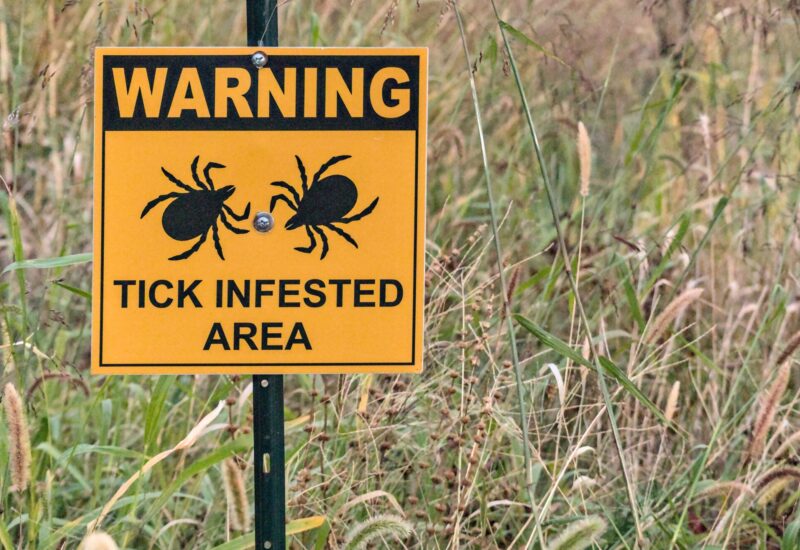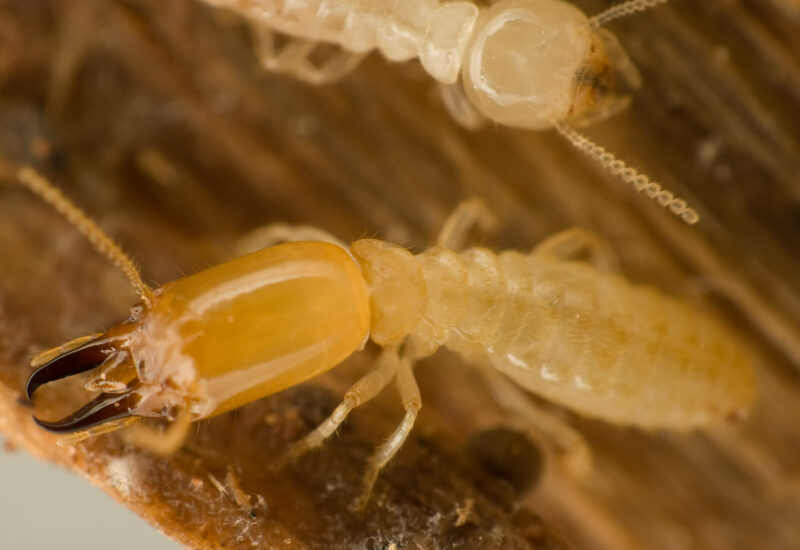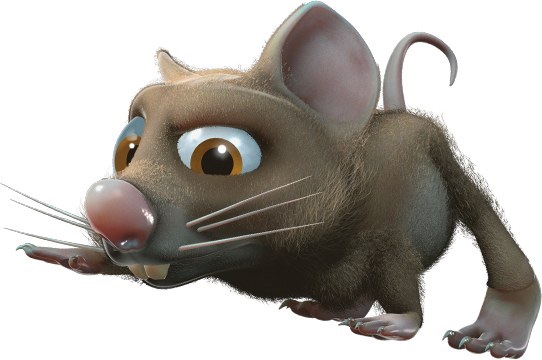How to Protect Your New Hampshire Garden from Springtime Pests

Gardening season is almost here. It officially spans from early May through early October, although you can start sowing some seeds, including peas and broccoli, as early as March. If you are like many New Hampshire residents, you probably start making plans before the temperatures start warming up and the days get longer.
Catseye Pest Control has helped gardeners and homeowners with organic pest control both indoors and outdoors for decades. Our years of experience have taught us one big lesson — although nothing is foolproof, a healthy, pest-free garden requires a little extra planning. Let’s explore a few of the strategies you can use this year to maximize your garden pest control and help your plants thrive.
Choose Resilient Plant Varieties
For starters, what you plant matters. Some species are resistant to pests and diseases, which makes it much simpler to protect the garden. Additionally, opting for drought-tolerant plants can also help minimize problems, as water shortages can stress non-resilient plants and increase their susceptibility to pests.
Some examples of resilient plants to consider include the following:
Pest-Resistant Plants
- Lavender
- Marigolds
- Geraniums
- Rosemary
- Chives
- Basil
- Chrysanthemums
- Nasturtiums
Deer-Resistant Plants
- Salvia
- Lavender
- Daffodils
- Bee balm
- Russian sage
- Peonies
- Bleeding hearts
- Garlic
Drought-Tolerant Plant Varieties
- Butterfly milkweed
- Blanket flower
- Blue wild indigo
- Goldenrod
- Purple coneflower
- Creeping juniper
- Forsythia
- Flowering quince
- Common lilac
Implement Good Garden Hygiene
Half the fun of having a garden is spending time in it. Using the time you spend gardening to maintain a well-kept space that focuses on good garden hygiene can make a tremendous difference in controlling pest problems.
- Clean Up: Before planting the garden, it’s critical to clear the area of debris from the season before, as that debris can harbor pests.
- Rotate Your Crops: Growing plants in different areas of the garden every year can disrupt the lifecycle of the pests that prey on those specific crops, helping to minimize infestations naturally.
- Fertilize: Healthy plants are more resistant to pests. By maintaining the health of the soil in your garden, you can support healthy growth that will also resist harmful pests.
- Be Mindful of Spacing: Don’t crowd plants together, no matter how tempting it may be, even for decorative landscaping. That full, lush, crowded garden bed is vulnerable to moisture problems. In turn, the added moisture can encourage disease and pests alike.
Use Organic Pest Control Methods
Organic pest control methods, like companion planting and introducing beneficial insects to the garden, can help control harmful pests without harming plants, pollinators, or people. This approach prioritizes prevention first, with good garden hygiene at the top of the list.
Neem Oil
This versatile, powerful organic pesticide is an agent of control, not prevention. It can impact pollinators, so it’s important to only use it when beneficial insects aren’t active. Derived from neem tree seeds, this natural insecticide can control pests like flea beetles, spider mites, aphids, thrips, whiteflies, and more. It also has fungicidal properties, which can help control diseases like powdery mildew and black spot.
Companion Planting
Pairing the right plants together serves as a little bit of gardening magic. Some plants, like corn and green beans, impact the soil in favorable ways for each other. In this instance, the corn provides a natural trellis for the beans while the beans fix the nitrogen in the soil, which helps the corn thrive. Add rosemary and summer savory to the mix, and you can also ward off bean beetles.
Other plants can naturally help deter pests to make the garden thrive. Some popular pairings include:
- Tomatoes with basil to repel mosquitoes and flies
- Cucumbers with nasturtiums and marigolds to repel beetles and aphids
- Carrots and onions to repel carrot flies
- Lettuce with mint and chives to repel slugs and aphids
Beneficial Insects
Welcoming natural predators to your garden can be helpful to control the populations of harmful insects. Pollinators can also contribute to the health of the plants. Some examples of beneficial insects include:
- Wasps, which prey on insects like spiders, beetles, and stink bugs
- Lady beetles (ladybugs), which feed on whiteflies, aphids, and mealybugs
- Green lacewings, which prey on scales, aphids, and mites
- Assassin bugs, which feed on leafhoppers, caterpillars, aphids, and Japanese beetles
Install Physical Barriers
Just as Cat-Guard Exclusion Systems protect key areas of your home and other buildings, physical barriers can protect your plants and garden spaces. Physical barriers, including row covers, fencing, and netting, prevent insects, rodents, and nuisance wildlife from destroying your garden. They can also offer a versatile, long-term, chemical-free solution to pests.
Row Covers
Row covers are typically made from gauzy, lightweight fabrics. They let sunlight in, along with ample moisture and airflow. Row covers prevent pests, including insects like aphids and beetles, rabbits, deer, and birds, from munching on and infesting plants. Additional benefits include protecting plants from frost, warming the soil and extending the growing season, and helping plants grow more readily.
Fencing
New Hampshire’s Eastern cottontail rabbits can wreak havoc on the garden, chewing on leafy lettuces, flowers, and fruit. Woodchucks also can be incredibly destructive, along with common insects and other wildlife. Fencing helps deter these critters and works particularly well with taller crops that are not well suited for row covers. If you only have small animals invading your garden, a fence two to three feet tall may be sufficient. If you also get deer, you may need fencing a minimum of five to six feet tall to protect your crops.
Netting
Netting is made from translucent mesh fabric or very fine metal that doesn’t allow heat to accumulate as much as row covers do. This helps protect heat-sensitive crops while protecting plants from insects and other pests.
Regular Inspections/ Professional Pest Control
No matter what strategies you put into practice, nothing can replace the value of routinely inspecting your garden for signs of trouble. The sooner you catch a potential infestation of insects, rodents, or visiting wildlife, the less damage they can do. Regular inspections give you a chance to remove pests like aphids physically by picking them off or blasting them with the hose. Combined with methods like organic pest control and introducing beneficial insects, simple inspections can be a powerful gardening tool.
It also empowers gardeners by allowing them to recognize when it’s time to call professionals. Professionals can provide powerful treatments that do minimal harm to people, pets, and the environment. Trained technicians know how to handle situations, including rodent invasions and problems with nuisance wildlife.
Call Catseye for Expert Outdoor Pest Control to Protect Your Garden
Spring is a magical time, and as nature starts waking up once more, the urge to start gardening increases. However, spring also brings many pests and other critters with it, each of which can damage your gorgeous garden.
Catseye has decades of expertise and the licensing and training necessary to handle even challenging cases with protected species of wildlife. Keep your home and garden safe and free of pests. Whether you need to keep your outdoor space clear of ticks and mosquitoes or eliminate mice and rats with our Rodent Plus Program, Catseye has the services you need.
Contact us today to learn more about our professional pest control services or to schedule a free inspection to get started.






